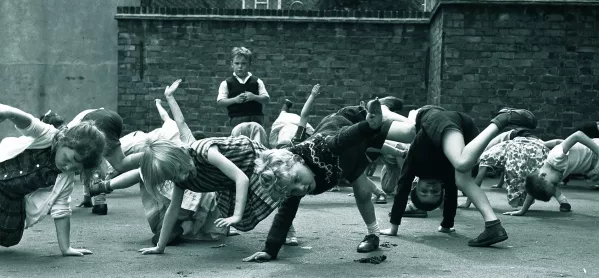What is the point of PE? In primary schools it is often seen as an opportunity for children to “let off steam”, to have some fun, to exercise.
But it’s really an opportunity to develop children’s physical competence, while supporting and challenging where necessary; to develop personal skills that are transferable in all aspects of life; and to inspire pupils to succeed and excel in sport.
So what can we do to ensure that we are providing the best physical education we can for our pupils? We can start by banishing the following myths:
1. ‘I can’t teach PE’
No teacher is an experienced writer, mathematician, scientist and historian at the same time. Classroom pedagogy doesn’t change with PE - it’s just a different environment. If you can teach, you can teach PE. Well-planned and resourced lessons should bear no additional challenge.
2. ‘I don’t teach PE’
A sports coach is an invaluable resource when deployed effectively. Where class-teacher confidence is a concern - particularly with regards to subject knowledge - a sports coach, working alongside a class teacher can bring huge benefits.
But where sports coaches are deployed in place of the class teacher, this fear and lack of confidence can be amplified. Ultimately, this quick fix can result in the long-term deskilling of teachers.
3. ‘Today, we’re doing basketball’
Ensure you know the objective for the lesson and communicate it. Often, when asked what they learned in PE, a pupil will simply respond with “football” or “basketball”.
PE is not about learning to play specific sports - it’s about developing transferable skills that can be applied in a variety of situations.
If the lesson focus is on passing and receiving, ensure that pupils know this, and that it can be applied in any invasion game. Basketball, for example, is simply the context in which you’re helping pupils to learn those skills.
4. ‘Let’s play a game’
We wouldn’t expect a child to write a fantasy story in English without teaching them the necessary techniques and features. So how can we expect children to compete in full-game situations without first teaching the necessary skills?
Of course, we need to provide opportunities for pupils to apply skills in a game situation, so create games that are in line with the skill progression, to ensure they enjoy putting what they are learning into practice.
5. ‘If you don’t finish your writing, you can finish it in PE’
As with all lessons, we want PE to be fun. But we must not forget that it is part of our curriculum. When teachers use PE as a bargaining tool to manage pupil behaviour, what message are we sending to our pupils? Perhaps that PE is a reward rather than an important lesson.
Don’t make them sit out - we wouldn’t make them sit out of maths or English.
